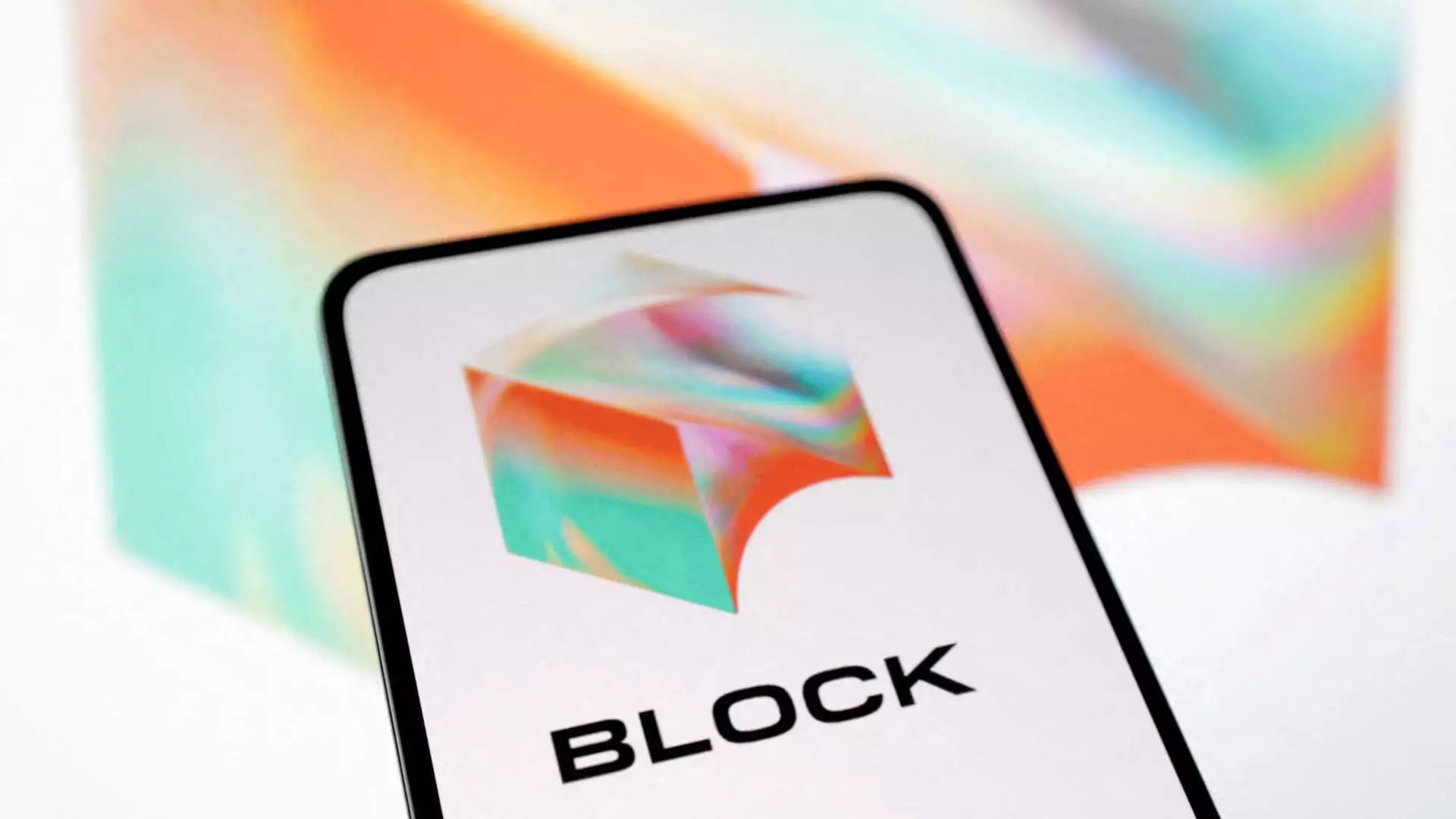Block, the company formerly known as Square, recently released its third-quarter earnings report, which fell short of Wall Street’s revenue expectations. Despite the initial negative reaction in the stock market, a nuanced analysis reveals a more complex picture where profitability metrics garnered attention, overshadowing the revenue miss. This article delves into Block’s financial performance, strategic initiatives, and market positioning as it navigates its relationship with the modern payments landscape.
Block’s reported revenue for the third quarter stood at $5.98 billion, noticeably below the anticipated $6.24 billion. However, the company’s adjusted earnings per share (EPS) of 88 cents slightly surpassed the 87 cents projected, prompting a reassessment of the results by investors. The chief financial officer, Amrita Ahuja, emphasized an emerging focus among analysts on gross profit metrics over revenue figures, suggesting a shift towards evaluating the operational efficiency and overall health of the company. Block reported a gross profit of $2.25 billion, marking a commendable year-over-year growth of 19%, along with a net income of $283.7 million, a striking turnaround from the prior year’s loss.
This emphasis on gross profit highlights the company’s strategic shift towards sustainable growth rather than merely meeting top-line revenue expectations. Given the competitive landscape of the fintech sector, this approach could prove advantageous in the long term, as firms pivot to prioritize core profitability amid fluctuating consumer demands.
The Cash App, a cornerstone of Block’s operational framework, delivered gross profit of $1.31 billion, achieving a 21% increase from the previous year. Monthly active users utilizing the Cash App Card climbed to over 24 million, reflecting the platform’s growing popularity and penetration into the mobile payments space. However, the segment’s gross payment volume totaled $62.4 billion, trailing behind expectations of $64.3 billion. This discrepancy is significant as it underscores the challenges Block faces amidst stiff competition and evolving consumer behavior in payment methods.
Despite this setback, Block is projected to achieve a 14% increase in gross profit for the upcoming fourth quarter, boosting investor confidence in its operational resilience. These metrics suggest that while market dynamics are shifting, Block is determined to enhance its profitability and solidify its user base.
As Block looks to broaden its financial services, the company has invested in artificial intelligence to refine its lending products. With a particular focus on the Afterpay buy now, pay later (BNPL) service acquired for $29 billion in 2021, Block aims to position Cash App Cards as a viable alternative to traditional credit cards. Dorsey’s quarterly shareholder letter highlighted these ambitions and the company’s adaptability in offering user-centric financial solutions.
Furthermore, the low loss rates across Block’s lending initiatives (approximately 1% for BNPL, 3% for Cash App Borrow, and 4% for Square Loans) indicate a robust risk management framework, essential for maintaining investor trust and sustainability in growth. Analysts view lending as a primary driver for future monetization within Cash App, potentially expanding into complementary businesses, such as advertising.
In light of recent economic pressures, Block has initiated cost-cutting measures, signaling a departure from less profitable ventures. The company announced plans to scale back investments in Tidal, the music-streaming service, and to entirely wind down TBD, its Bitcoin-focused division. This strategic reprioritization is important for aligning resources more effectively and streamlining operations to foster growth.
Regarding Bitcoin, Block remains committed to expanding access and understanding of cryptocurrency through the Cash App platform. The company holds a significant amount of Bitcoin, valued at approximately $630 million, underpinning its recognition of cryptocurrency as an integral part of its business strategy.
Block’s third-quarter financial results reveal a notable juxtaposition between revenue performance and profitability growth. While the company faced challenges in meeting revenue expectations, the impressive growth in gross profit and net income portrays a company in the midst of strategic realignment. As Block navigates the complexities of the fintech landscape, its focus on sustainable monetization through innovative lending products and cost management will be critical to ensuring continued growth and relevance. The company’s leadership must remain agile in this dynamic market, adapting to consumer preferences while exploring new revenue streams.

